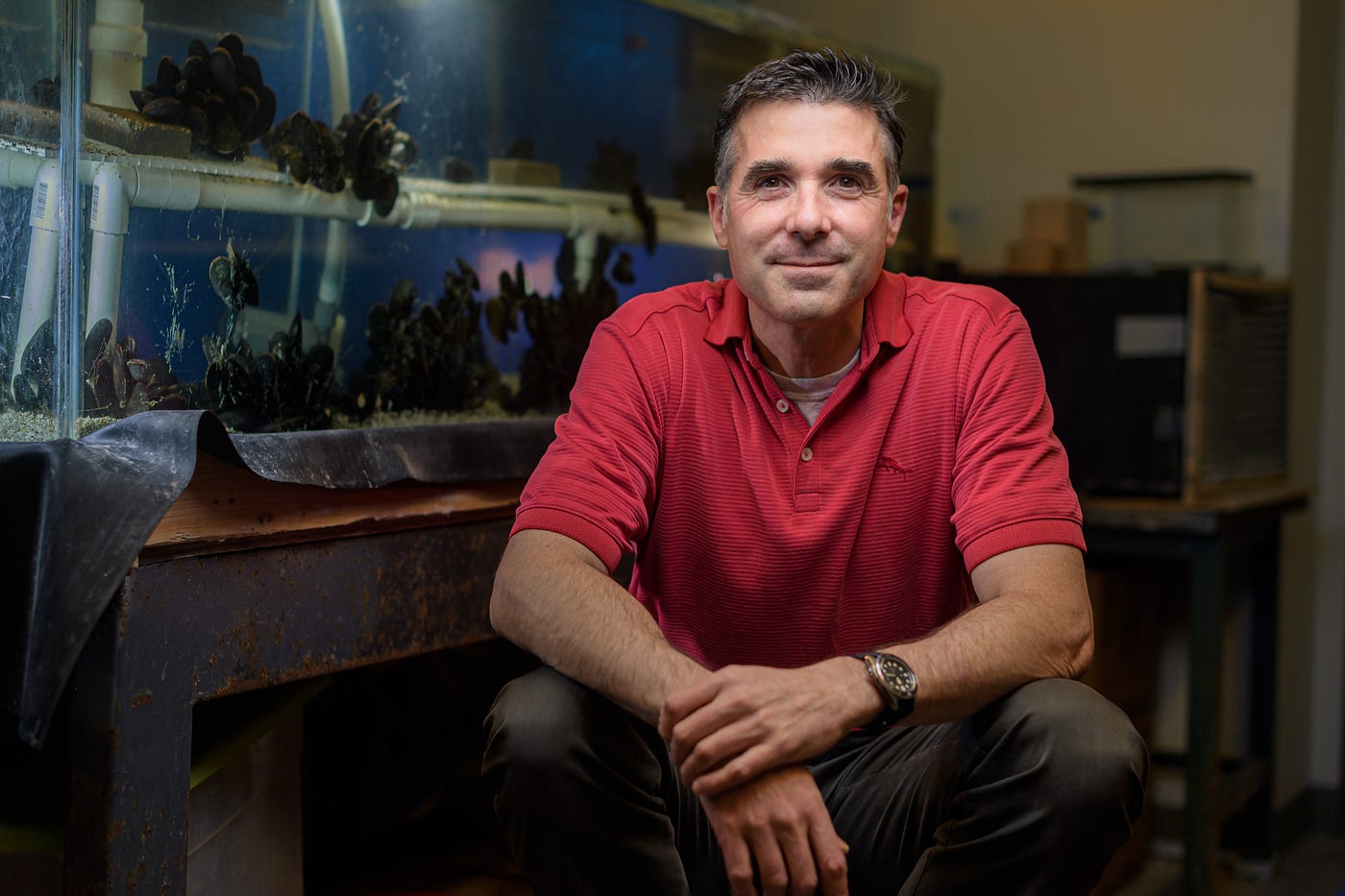August 31, 2022
Take 6: Jonathan Wilker, College of Science

Jonathan Wilker is a Purdue University professor of inorganic chemistry from the Department of Chemistry. He also has a courtesy appointment in the School of Materials Engineering.
Wilker created a patent-pending adhesive based on zein, a protein in corn. The adhesive is degradable, nontoxic and tunable, which means it can be adjusted for strength, flexibility and performance in extreme temperature, moisture and high-vibration conditions. It was optioned from the Purdue Research Foundation Office of Technology Commercialization to gluECO Adhesives LLC in Massachusetts, which plans an initial line of products in the fourth quarter of 2022.
Wilker generously shared his time to answer our questions.
Question: Was this the profession you always thought you would go into? How or when did you know?
Jonathan Wilker: Even as a kid, I wanted to become a scientist. So far, so good! As scientists, we get to explore how the world works and also to create new technologies. There are so many cool things to learn about all around us. I never had any big plan to be a professor and study what we do now in our research group. I do feel quite fortunate that life has worked out to let us play in the lab and explore whatever it is that we find to be the most fascinating.

Q: How do you see your research being used? What further implications do your findings have?
Wilker: We explore how nature makes materials. The particular focus is working to understand how sea creatures, such as mussels and oysters, make adhesives for attaching themselves to rocks. Then we use insights learned from the animals to make biomimetic adhesives.
We now have some systems that can bond completely underwater. There are applications that we are working on including coral reef restoration and biomedical bonding. Imagine if we could avoid the pain and damage from sutures, staples and screws by using adhesives for alternatives.
A recent emphasis in the lab is sustainability. Instead of the petroleum-based, permanent glues that are used now, we are creating bioinspired adhesives that are high performance and sourced sustainably.

Q: What are you reading right now? What is on your reading list?
Wilker: Most of what I read is non-fiction and, often, about airplanes. Right now, it’s “Hell’s Angels: The True Story of the 303rd Bomb Group in World War II.” This book does a wonderful job of visualizing what it was like flying bombing missions into Germany. The flak and fighter attacks were vicious. Crews also had to deal with extreme cold and little oxygen. Too few of them made it back. Coincidentally, this book was written by a Purdue alum, Jay A. Stout.
Up next is likely another aviation book, “The Dream Machine: The Untold History of the Notorious V-22 Osprey,” by Richard Whittle. Then maybe I’ll mix it up a bit with “Opening the Great Depths: The Bathyscaph ‘Trieste’ and Pioneers of Undersea Exploration” by Norman Polmar and Lee J. Mathers. I am curious to learn about what it was like to design a submersible for reaching the lowest point in the oceans. And then have the nerve to actually get in and descend into the abyss, 35,000 feet below the surface.
Q: What is your differentiator that gives you a unique perspective, or your superpower?
Wilker: Just look around. Some of the most exciting science can come from pondering the seemingly simple things that we pass by each day. A lot of what we do in our lab comes from peering into a tide pool. Kids can even ask questions about things that they see at the beach for which we adults still do not have answers.

Q: What technology or discovery in your field is the most underappreciated?
Wilker: Adhesives are everywhere around us. They hold together our electronics, furniture, houses and cars. On one hand, glues can do amazing things. On the other hand, adhesives also create several environmental issues.
At the end of useful life, most products cannot be recycled owing to the adhesives preventing separation of substrates or gumming up recycling machinery. Packaging is particularly bad here, with tape and labels meaning that most cardboard and plastic ends up in landfills. Creating a new generation of sustainably sourced adhesives may yield tremendous environmental benefits.
Q: Do you consider yourself an extrovert or an introvert?
Wilker: “Hey, you kids! Get outta my yard!” Oh, OK. I’m probably really in the middle here.

Thank you again to Jonathan Wilker for participating in Take 6!
